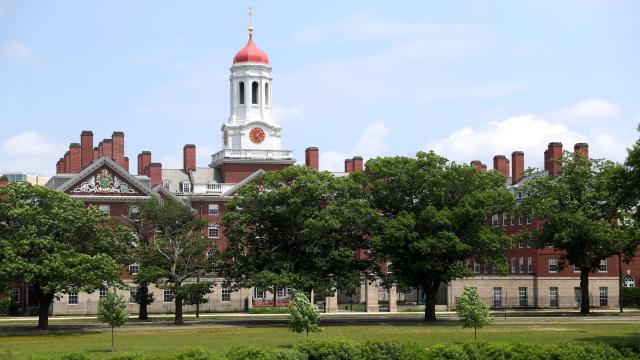A trio of the nation’s premier law schools are bucking a longstanding ranking trend and opting out of the U.S. New and World Report’s top colleges list. Dean’s from the schools expressed exhaustion with the list’s incentive structures and said the company’s ranking methodology is mostly to blame.
On Tuesday, officials from Yale and Harvard laws schools, widely considered among the best in country, announced they would no longer be participating in the annual ranking with the dean from the former claiming requirements needed to make the list were, “undermining the core commitments of the legal profession,” and stand, “squarely in the way of progress.” Berkeley Law followed up with similar commitments the following day.
Yale Law School Dean Heather Gerken expanded on the school’s decision to in a blog post in which she described the rankings as, “profoundly flawed.” Among other issues, Gerken claimed U.S. News and World Report’s ranking methodology disincentivizes welcoming in low-income students from working class backgrounds and harms programs that support students pursuing careers in public service. U.S. News and World Report’s rankings, according to Gerken, fail in part because they attempt to rank 192 different laws schools using a “small set of one size fits all metrics.”
Not long after that, Harvard Law School’s dean John Manning released a statement announcing it too would withdraw from the rankings this year. Manning said the rankings, as they are currently designed, emphasise characteristics that create “perverse incentives” which influence universities policies at the student body’s expense. Specially, Manning said adhering to the magazine’s ranking methodology made it more difficult to bring in students from wide socio-economic classes and allocate financial aid based on need. The rankings’ heavy preferences towards high standardised test scores, Manning argued, also pressure universities away from granting financial aid to those who may need it most.
“We at HLS have made this decision because it has become impossible to reconcile our principles and commitments with the methodology and incentives the U.S. News rankings reflect,” Manning wrote.
Two may be a coincidence, but three is a trend. At least, that may have been on Berkeley Law Dean Erwin Chemerinsky’s mind when he announced his school’s withdrawal from the rankings on Thursday. Like Yale and Harvard, Chemerinsky worried U.S. News and World Report’s ranking methodology pressures them away from offering fellowships and other programs aimed at students looking to pursue careers in public service law.
“Rankings have the meaning that we give them as a community. I do not want to pretend they do not,” Chemerinsky wrote. “The question becomes, then, do we think that there is a benefit to participation in the US News process that outweighs the costs? The answer, we feel, is no.”
Though universities and academics have scruffed their noses at rankings in various degrees for years, very few have actually taken the major step to abandon the U.S. News and World Report ranking which has over time turned into the de facto metric for many students searching for universities, both on the undergraduate level and for advanced degrees.
U.S. News and World Report did not immediately respond to Gizmodo’s request for comment though it defend its ranking methodology in a recent Wall Street Journal article. The magazine’s CEO Eric Gertler, claimed Yale’s dean mischaracterized its rankings and said its goals for the rankings remain unchanged.
Controversies and unintended consequences downstream of ranking metrics are all too familiar in the world of tech. At Meta, Facebook and Instagram ranking algorithms allegedly leading users to harmful content were among the top issues cited by whistleblower Frances Haugen at her Senate testimony last year. YouTube, meanwhile, has repeatedly caught flack for its ranking algorithm which critics claim has led users down a rabbit hole of political extremism.
